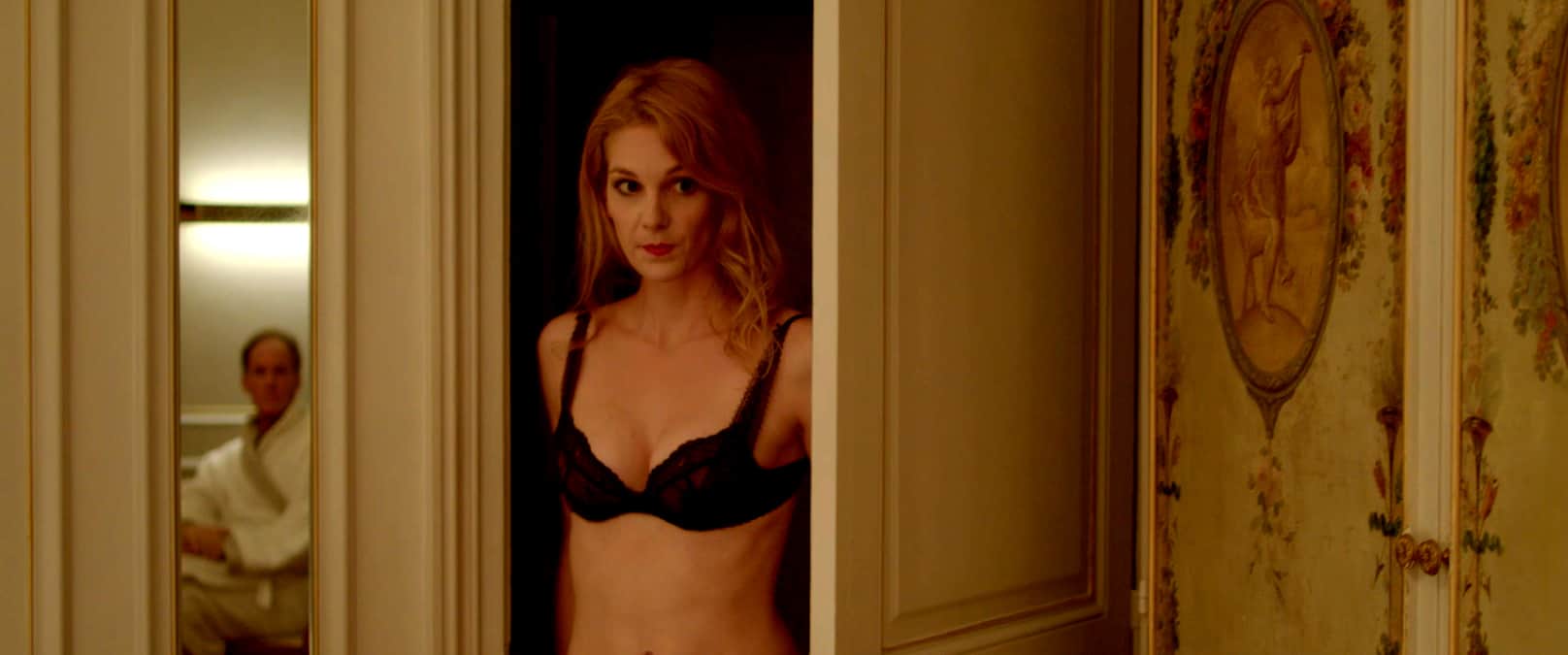Josephine Mackerras’ stunning debut feature film Alice explores sex addiction, motherhood, and sex work, with scrupulous care. It’s a masterful cinematic story of survival, and one that I haven’t seen before.
Alice tells the story of a family imploding after a wife, Alice, (Emilie Piponnier), discovers that her husband, Francois (Martin Swabey) has emptied their savings, and incurred massive debt, because of an addiction to sex services from a high-end escort agency.
I woke up at 5:30 AM to call Mackerras, in Brisbane, Australia (where she is originally from), to discuss the film she wrote and shot in Paris.
I assumed that some mind-blowing real-life story about a scandalous double life was the inspiration behind the film, but discovered that the story was born out of creative constraints. “I really wanted to use what I had around me in order to write a big story in a small space that I could make on a low budget,” says Mackerras, admitting that the writing also helped her work out stressful issues in her own life.
“You only find out after the fact why you wrote it,” she says, which is a truth that many don’t recognize. “I was grappling with a lot of questions around love and relationships and need versus love, and a lot of anger about hypocrisy in society, in regards to female sexuality. This was a vehicle to put all those emotions in there.”
What’s astonishing is how neatly she manages to thread a mess of tangled and confusing emotions together.

Once Alice discovers the truth of her relationship, and the magnitude of the damage caused by her husband, she is forced to move into survival mode, in order to keep her home and maintain stability for her young son.
“Francois’ pain, and what he is dealing with, is the driving force of the story. Alice is reacting, she’s surviving and taking care of her kid, but the driving force is the husband,” says Mackerras, who admits she was curious to explore the drive of sex and porn addiction, about people who lead double lives, the burden they carry, and what is it that drives someone to do that.
Sex work isn’t something that Alice would have ever considered, but after discovering the exorbitant amount of money her husband was spending on escort fees, she realizes that the savings he drained could be made back quickly, in a similar vein. For Alice, it was the easiest and most efficient way for her to repay the bank that allowed her the time she needed and wanted to care for her child.
“I’ve always been a fiercely independent woman and having a baby….it was shocking to me how dependent I was. It’s a very vulnerable position to be a mother,” says Mackerras. “There is a warrior who comes out, and I think every woman has that. If they don’t have it for themselves, they’ll have it for their child. Motherhood is an extraordinary force.”
The strength, determination, and nimbleness required to juggle the heavy load that her husband dumped on her was important for Mackerras to show, but just as important was the statement she wanted to make about sex work: “There’s a lot of women carrying shame and guilt that they shouldn’t be.” In Alice, sex work isn’t glamourized, nor is it shown as something dirty or less than, it’s portrayed as a consensual transaction, and a solution for a mother to gain back control of her life.
Unlike the Pretty Woman narrative often played out on screen, Alice isn’t rescued—she saves her own life.
Alice is available to stream on Vimeo On Demand, iTunes and Apple TV beginning July 20. Visit gametheoryfilms.com/alice for more info.



 Follow Us On Instagram
Follow Us On Instagram
